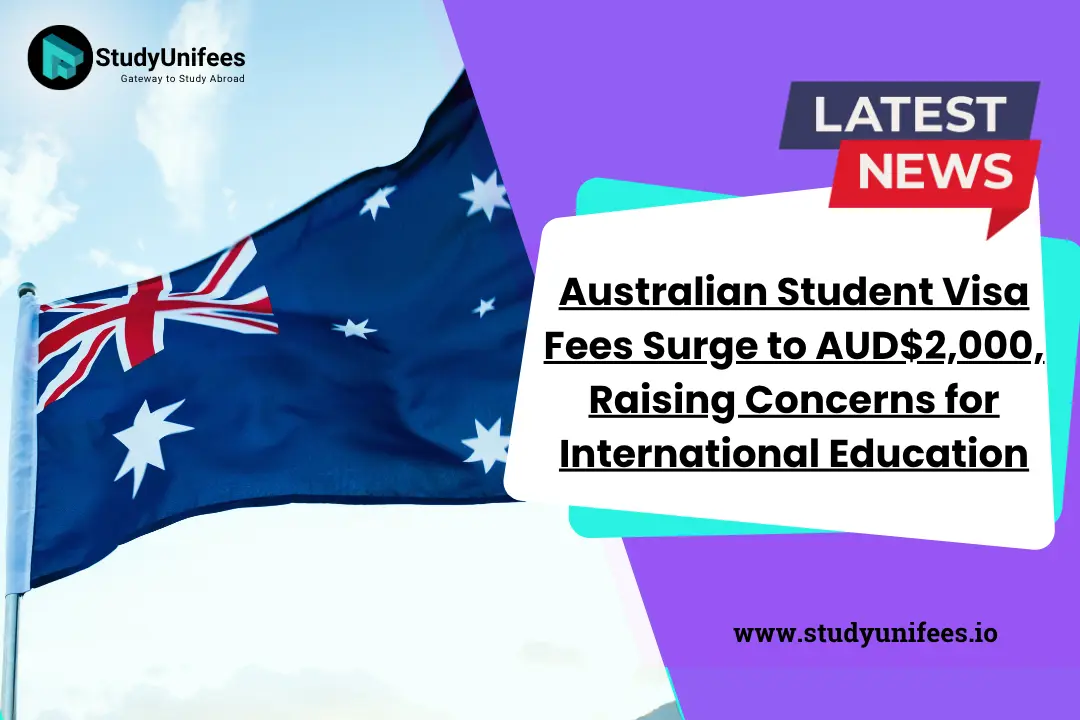Australian Student Visa Fees Surge to AUD$2,000, Raising Concerns for International Education

Australian Student Visa Fees Surge to AUD$2,000, Raising Concerns for International Education
As of July 1, 2025, the Australian government has raised the student visa application fee to AUD$2,000, solidifying Australia’s position as the country with the most expensive student visa fees globally. This latest hike follows a significant 125% increase in July 2024, when the fee jumped from AUD$710 to AUD$1,600. The escalation in costs has sparked widespread debate, particularly within the international education sector, about its impact on Australia’s appeal as a study destination and the sustainability of its education industry.
Reasons Behind the Fee Increase
The Australian government has justified the fee hike as a measure to enhance the integrity of the student visa program. According to a spokesperson from the Department of Home Affairs, the increase aligns with the government’s commitment to managing international education sustainably while maintaining its quality, fairness, and credibility. The higher fees are intended to deter non-genuine applicants, ensuring that visas are granted to students who contribute to Australia’s economic growth through education and skilled migration pathways. Additionally, the government aims to offset the administrative costs of processing visa applications and strengthen compliance measures to prevent visa misuse.
Historically, Australia has periodically adjusted its visa fees to reflect economic and policy priorities. For instance, the fee was AUD$575 in 2019, before rising to AUD$620 in 2020 and AUD$710 by 2023. The sharp increases in 2024 and 2025, however, mark a significant shift, reflecting the government’s focus on stricter immigration controls and sustainable growth in the international education sector.
Impact on the International Education Sector
Australia’s international education industry, valued at approximately AUD$40 billion annually, is a cornerstone of the nation’s economy, supporting thousands of jobs and contributing to cultural diversity. However, the visa fee hikes have raised concerns about the country’s competitiveness as a study destination, particularly when compared to countries like Canada, the UK, and the US, where visa fees are significantly lower (e.g., the UK’s student visa fee is around AUD$700 equivalent).
The English Language Intensive Courses for Overseas Students (ELICOS) sector has been hit hardest. Following the 2024 fee increase, ELICOS providers reported a 50% drop in enrolments, as students enrolling in shorter-term English language courses found the high visa costs disproportionate to their study duration. The additional AUD$400 increase in 2025 is expected to exacerbate this trend, potentially deterring prospective students from choosing Australia for short-term or preparatory programs.
Universities, which rely heavily on international students for revenue, are also bracing for potential impacts. While Australia remains a popular destination due to its high-quality education, safe environment, and post-study work opportunities, the rising costs could push price-sensitive students toward more affordable alternatives. Countries like Canada and New Zealand, with lower visa fees and competitive education offerings, may gain an edge. Furthermore, the fee hikes could disproportionately affect students from developing nations, potentially reducing diversity in Australian classrooms.
Exceptions and Government Assurances
The government has maintained reduced visa application charges for primary applicants from Pacific Island nations and Timor-Leste, honoring existing regional agreements. This exemption aims to support educational access for students from these areas, fostering regional goodwill and development.
The Department of Home Affairs emphasizes that the fee increase is part of a broader strategy to ensure the long-term sustainability of the international education sector. By prioritizing “genuine” students, the government hopes to maintain Australia’s reputation as a premier education destination while addressing concerns about visa system abuse.
Potential Outcomes for Universities
The university sector faces a complex outlook. On one hand, the fee increase may filter out less committed applicants, potentially reducing strain on resources and improving the quality of student cohorts. On the other hand, a decline in international student numbers could lead to significant revenue losses for universities, particularly those heavily reliant on international tuition fees. Regional universities and institutions offering specialized or short-term courses may face the greatest challenges, as students may opt for more affordable programs elsewhere.
Moreover, the fee hikes could accelerate the shift toward online and transnational education programs, where students can access Australian qualifications without incurring visa costs. Universities may need to invest in digital infrastructure and innovative delivery models to remain competitive.
The final word
The increase in Australia’s student visa fee to AUD$2,000 marks a bold move to strengthen the integrity of its visa program, but it comes with risks. While the government aims to ensure sustainable growth in the international education sector, the rising costs could deter prospective students, particularly in the ELICOS and short-term course markets. As universities navigate this new reality, they may need to adapt their recruitment strategies and program offerings to maintain Australia’s position as a global education leader. The long-term impact of these changes will depend on how the government balances economic goals with the need to remain an attractive destination for international students.
